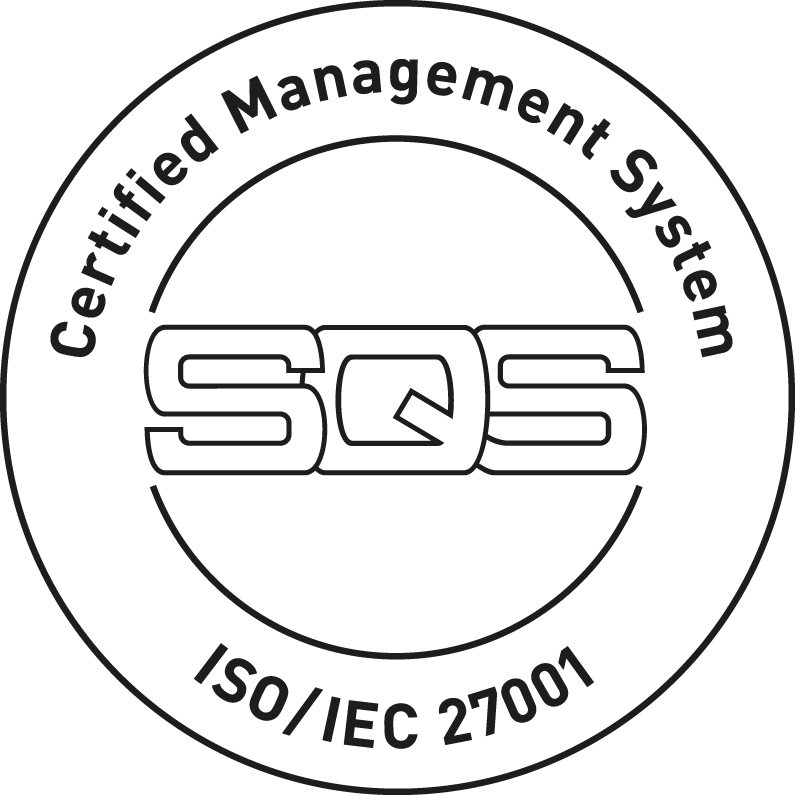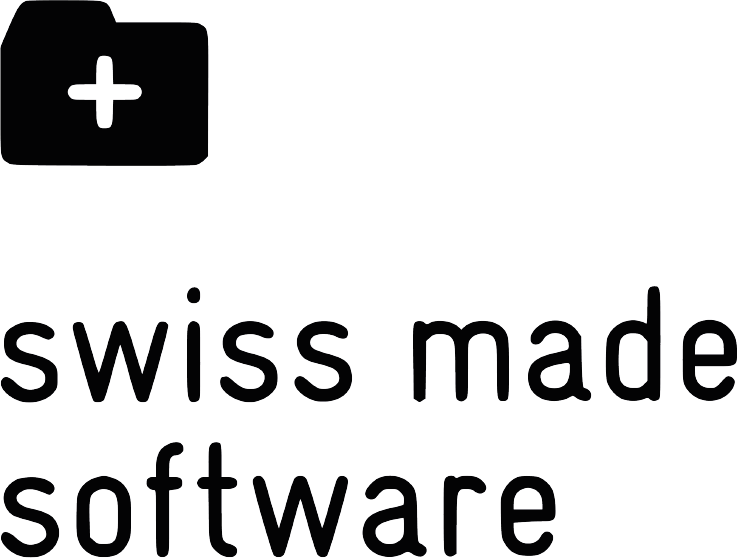FAQ for candidates/employees
Pre-employment verifications
This verification programme allows your (future) employer or client, hereafter “Employer”, to verify important points in your candidate file in order to comply with its internal recruitment or security regulations, and to ensure that you are the person it is looking for for the role it has defined in its organisation.
Depending on your position in the organisation, your employer has defined a number of items to be checked and/or documents to be updated. In your personalised and secure web interface, the access to which is sent by Aequivalent, you will have a complete and exhaustive view of the points that will be checked.
Aequivalent is a specialised company that has been mandated by your Employer to carry out the necessary checks and to draw up an independent and objective report, as well as to help you follow this standardised process. If discrepancies are found, Aequivalent will publish them in its report and your Employer can ask you additional questions. Aequivalent is mandated to carry out checks but only your Employer will decide what actions will be taken, based on the report.
An Employer has rights, obligations and a legitimate interest in collecting information about its future employees and agents, as long as it only collects information that is relevant to ensuring their ability to perform a given role. Therefore, your consent is not legally required for information to be collected about you.
Although your Employer has the right to collect certain information about you, Aequivalent requires you to sign the Authorisation Statement before beginning the verification process. This document ensures that you have been informed by your Employer beforehand that it has mandated Aequivalent to collect and verify your information. The signature of the Authorisation Statement is also necessary to obtain information from third parties according to the verifications that your Employer has ordered from Aequivalent (competent authorities, such as the office responsible for obtaining an extract from your criminal record, prosecution office, universities, references, …) and to establish a personality profile.
Yes, your Employer has put in place a background check policy and uses the services of Aequivalent to ensure that the process is carried out according to best practices. However, if you do not want your information collected, you have the right to refuse. If you are considering refusing to participate in the verification programme, we advise you to discuss this with your Employer beforehand, who will decide how to respond to your refusal.
Your data is processed by Aequivalent on behalf of your Employer, who decides on the processing. Therefore, any questions regarding the results of the checks should be addressed to your Employer. Aequivalent is ISO/IEC 27001:2022 certified and uses your data and documents only for this specific and unique verification programme. Aequivalent automatically deletes all data and documents concerning you 90 days after the report to your employer. In addition, you can request a faster deletion of your data at any time via your personalised access to the platform.
Aequivalent is ISO 27001 certified, ensuring the highest level of care in handling your data.
Information sharing with third parties is kept to an absolute minimum. Furthermore, we
strictly comply with the Swiss Data Protection Act (DPA) and, where applicable, the
European General Data Protection Regulation (GDPR).
The verification report is provided exclusively to the employer in electronic form. If you have
any questions regarding access to the report, please contact the employer directly.
In-employment verifications
This verification programme allows your employer to update your personnel file in order to comply with its internal human resources or security regulations.
Depending on your position in the organisation, your employer has defined a number of items to be checked and/or documents to be updated. In your personalised and secure web interface, the access to which is sent by Aequivalent, you will have a complete and exhaustive view of the points that will be checked.
Aequivalent is a specialised company that has been commissioned by your employer to carry out the necessary checks and to draw up an independent and objective report, as well as to help you follow this standardised process. If discrepancies are found, Aequivalent will include them in its report and your employer can ask you additional questions. Aequivalent is mandated to carry out checks, but it is your employer who will decide what actions to take, based on the report.
An employer has rights, obligations and a legitimate interest in collecting information about its employees, as long as it only collects information that is relevant to ensuring their ability to perform a given role. Therefore, your consent is not legally required for information to be collected about you.
Although your employer has the right to collect certain information about you, Aequivalent asks you to sign the Authorisation Statement before starting the verification process. This document ensures that you have been informed by your employer beforehand that he or she has mandated Aequivalent to collect and verify your information. The signature of the Authorisation Statement is also necessary to obtain information from third parties according to the verifications that your employer has ordered from Aequivalent (competent authorities, such as the office responsible for obtaining an extract from your criminal record, prosecution office, etc.) and to establish a personality profile.
Yes, your employer has put in place a verification policy and uses Aequivalent’s services to ensure that the process is carried out according to best practices. However, if you do not want your information to be collected, you have the right to refuse. If you are considering refusing to participate in the verification programme, we advise you to discuss this with your employer beforehand, who alone will decide what action to take.
Your data are processed by Aequivalent on behalf of your employer, who decides on the processing. Therefore, any questions regarding the results of the checks should be addressed to your employer. Aequivalent is ISO/IEC 27001:2022 certified and uses your data and documents only in the context of this specific and unique verification programme. Aequivalent automatically deletes all your data and documents 90 days after the report to your employer. In addition, you can request a faster deletion of your data at any time via your personal access to the platform.
Aequivalent is ISO 27001 certified, ensuring the highest level of care in handling your data.
Information sharing with third parties is kept to an absolute minimum. Furthermore, we
strictly comply with the Swiss Data Protection Act (DPA) and, where applicable, the
European General Data Protection Regulation (GDPR).
The verification report is provided exclusively to the employer in electronic form. If you have
any questions regarding access to the report, please contact the employer directly.
FAQ for organisations
A background check involves verifying the information provided by a candidate or employee, including identity, professional experience, education, reputation, ancillary activities and criminal records. At Aequivalent, we carry out these checks transparently and in compliance with Swiss data protection law (LPD) and European GDPR, ensuring reliable hires and strengthening trust in your employer brand.
Background checks reduce hiring risks such as fraud, integrity issues, fake diplomas, exaggerated qualifications, hiring mistakes or potential reputational damage. They foster trust and transparency between employer and employee from day one, while also helping reduce employee turnover.
Aequivalent offers a wide range of verification categories:
- Identity verification
- Diploma and certification verification
- Employment and reference checks
- Criminal record checks
- Financial integrity screening
- Social media screening
- Ancillary activities and conflict-of-interest checks
- And many more!
Aequivalent is a Swiss company (based in Yverdon & Bern) with over 10 years of experience in employee screenings, for both candidates and current employees. We conduct targeted background checks worldwide, verifying identity, financial integrity, potential conflicts of interest and the accuracy of candidate-provided information regarding education, diplomas, and work experience. Our secure digital platform manages the entire screening process and integrates seamlessly with leading HR systems such as Workday, SAP SuccessFactors, Lucca, PeopleWeek, Abacus and Adequasys, allowing you to initiate and track checks directly from your HRIS.
Yes. Background checks are permitted if they are proportionate and relevant to the position. In certain sectors (education, finance, etc.), they may even be legally or regulatorily required. Aequivalent conducts checks transparently and only with the candidate’s prior consent, in full compliance with Swiss Federal Data Protection Law (LPD) and SECO best practices.
Aequivalent adapts its processes to each country while ensuring international compliance for globally active companies.
Candidates need to submit a signed information and authorisation form, a proof of identity, and, if applicable, an updated CV. Depending on the screening, details of previous employers or copies of certificates and diplomas may be requested.
Yes. Consent is mandatory. Aequivalent does not start any verification without explicit candidate or employee authorisation. Refusal is a candidate’s right but may signal potential integrity concerns and justify not hiring. Some official documents such as residence confirmations, criminal records or debt register extracts, can only be obtained with a signed authorisation form.
Aequivalent conducts background checks worldwide, covering candidates in Switzerland and abroad. We verify information with previous employers, educational institutions and other official sources to ensure accuracy for international profiles.
- The client creates a corporate account on the Aequivalent platform based on their verification volumes.
- They select a program (pre-employment or in-employment) according to their needs.
- The candidate receives a secure invitation, creates and confirms their profile, signs an authorisation and submits required information online.
- Aequivalent collects, verifies and validates the information.
- The final report is delivered via the secure platform or directly integrated into the client’s HR system. It can also be shared with the candidate for added transparency.
Typically 2–15 business days, depending on the type of screening and countries involved. Our secure digital platform allows real-time tracking of the verification status 24/7. Preliminary results are often available within hours, with the final report completed progressively. All collected data remains accessible on the platform during the process and for 90 days after completion.
Aequivalent follows the highest data security standards and deletes all information no later than 90 days after each verification. Aequivalent undergoes independent audits at least twice a year and is ISO 27001 certified. All data is encrypted, handled under strict compliance oversight and stored exclusively in Switzerland in accordance with LPD and GDPR.
The final report includes a color-coded assessment (green, yellow, red) indicating compliance levels for each item verified. Online profile checks specify which networks and public websites were reviewed and include Aequivalent’s findings. Reports are accessible in the client’s secure platform account for review, download or printing at any time.
All personal data is deleted maximum 90 days after the report is issued. Anonymised data may be retained for statistical or optimisation purposes, without identifying individuals.
- Improved recruitment quality
- Digitalised and faster HR processes
- Reduced risk of costly hiring mistakes
- Time savings and reliable information
- Ensured organisational integrity
Checks are usually performed before signing a contract or starting employment. More and more, Swiss and European companies also perform periodic checks, e.g., after 2–3 years of tenure or before sensitive role changes, to maintain security and compliance.
Yes. Aequivalent integrates with HR systems like Workday, SAP SuccessFactors, Lucca, PeopleWeek, Abacus and Adequasys, enabling verification initiation and tracking directly within your HRIS, via customisable API or standard system integration.
- Self-service: For Swiss official documents or ad-hoc quick checks.
- Standard programs: For recurring SME needs.
- Custom programs: For large enterprises and regulated sectors.
Aequivalent serves a wide range of industries, including banking and insurance, healthcare, transport, education, IT, pharma, luxury, energy, aviation, NGOs, public administration, defense and many more.
Pricing depends on check type and volume. Programs start at CHF 10.- for a simple identity check, up to CHF 975.- for a full executive package. Contact us for personalised advice without obligation.
A reference check relies solely on a previous employer’s opinion, while a background check objectively verifies all official documents and facts about a candidate or an employee.
Aequivalent is ISO 27001 certified, ensuring the highest security for the digital platform and data handling. We strictly follow Swiss data protection law (LPD) and, where applicable, European GDPR requirements.
All data is stored exclusively in Switzerland, encrypted and processed in compliance with Swiss and European data protection laws. Minimal third-party sharing occurs during verification. Data is deleted no later than 90 days after the verification is completed.



